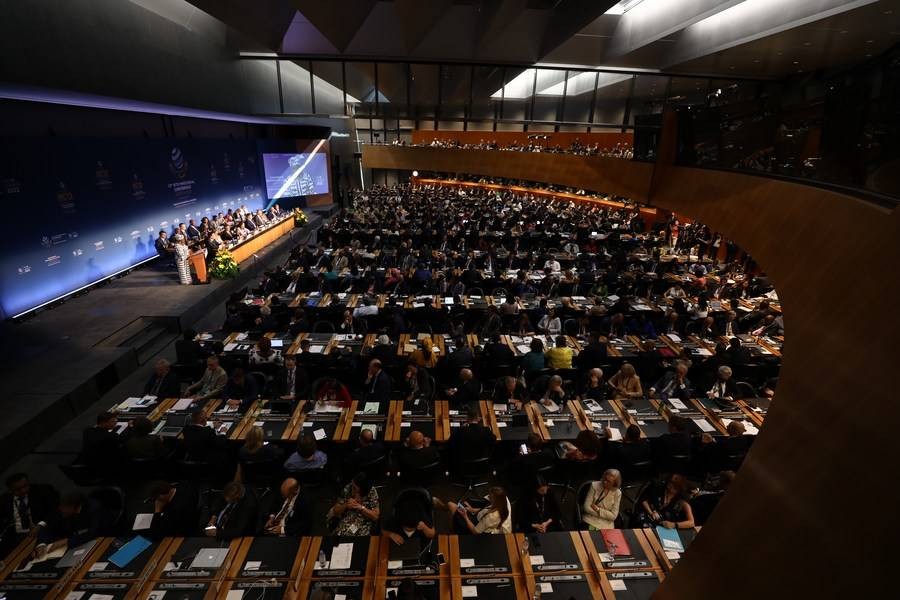Twice postponed due to the pandemic situation, the international body dealing with global rules of trade, the World Trade Organization (WTO), finally started its 12th ministerial conference (MC12) on Sunday in Geneva, Switzerland. Since the much-awaited ministerial meet of the world trade body is taking place when the global economy is in the midst of an unforeseen crisis compounded by a war, the developing nations including Bangladesh have a lot to expect from it. For as a populous nation, the country's economy is highly susceptible to sudden changes in the supply as well as prices of foodgrains and energy. Moreover, as the economy is in its graduation phase, Bangladesh naturally looks up to the WTO ministerial to address its concerns arising out of these crises of international origin. As such, of a raft of issues that concern Bangladesh and demand the WTO MC12's urgent attention, food security is, obviously, one. And, with the Ukraine war raging, a global foodgrains crisis is looming.
Unfortunately, far from responding compassionately to the problem, some countries, without prior notice, have, of late, resorted to imposing embargoes on their foodgrains export thereby worsening global food security as well as turning the international foodgrains market more volatile. Needless to say, most at risk in the face of such self-serving decision by some nations are the small and vulnerable economies which are already battered by the pandemic, food shortage and economic recession. So, for the sake of maintaining global food security, Bangladesh represented by its commerce minister has called upon the WTO to dissuade its foodgrains-rich members from slapping any abrupt ban on the exports of foodgrains. As expected, the representatives of the least Developed Countries (LDCs) at the WTO event were at one with Bangladesh's stance on the issue.
Side by side with food and other life-sustaining products, issues of public health, fuel price and long-term development concerns of the LDCs also came within the purview of Bangladesh's call for consideration by the WTO ministerial (MC12). Sadly though, this global multilateral agency could address few of these issues of concern for the developing and the least developed world so far. In fact, in most cases, it has been the drive for profit maximization by some of its member nations that got the better of attending to the urgent needs of humanity. In the circumstances, the Western WTO members will be required to allow some more breathing space for the erstwhile least developed economies including Bangladesh who are now well on their way to graduating to middle income ones.
At this point, the prospect that the trade benefits and exemptions these countries have been enjoying as LDCs would go as soon as they graduate is highly concerning for them. It is reassuring to learn on this score that the LDCs have made a common cause with countries like Bangladesh regarding the demand that the existing trade benefits for the graduating countries be extended for six to nine more years. It is heartening to learn at this point that Bangladesh has meanwhile negotiated an extension of one of such issues of concern, the Trade-Related Aspects of the Intellectual Property Rights (TRIPS), until January 2033. Hopefully, Bangladesh will play a leading role in realising the demands relating to the issues of greatest concern at the moment for the LDCs and the graduating nations at the negotiating table of the WTO MC12.


